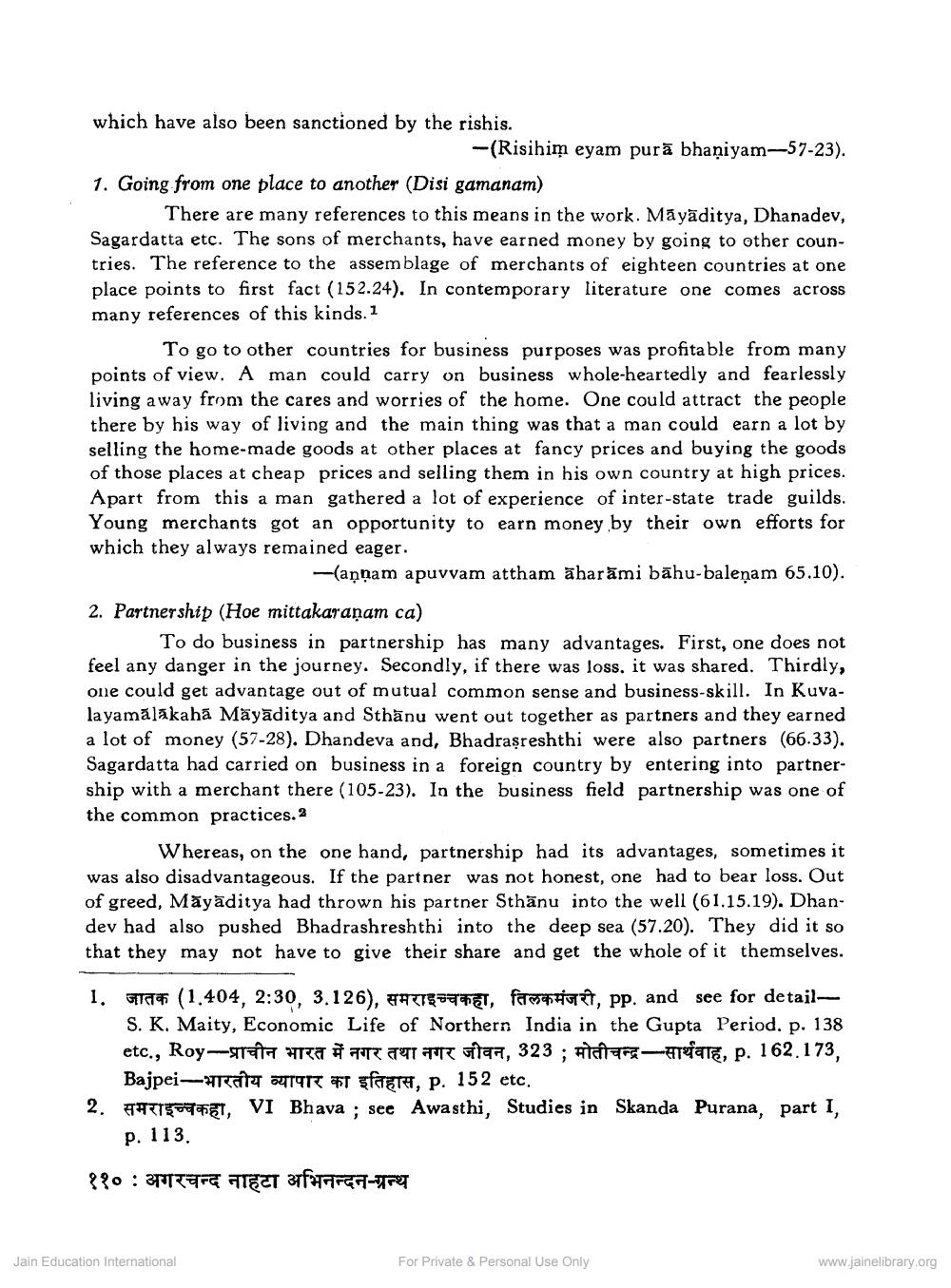________________
which have also been sanctioned by the rishis.
1. Going from one place to another (Disi gamanam)
There are many references to this means in the work. Mäyäditya, Dhanadev, Sagardatta etc. The sons of merchants, have earned money by going to other countries. The reference to the assemblage of merchants of eighteen countries at one place points to first fact (152.24). In contemporary literature one comes across many references of this kinds. 1
To go to other countries for business purposes was profitable from many points of view. A man could carry on business whole-heartedly and fearlessly living away from the cares and worries of the home. One could attract the people there by his way of living and the main thing was that a man could earn a lot by selling the home-made goods at other places at fancy prices and buying the goods of those places at cheap prices and selling them in his own country at high prices. Apart from this a man gathered a lot of experience of inter-state trade guilds. Young merchants got an opportunity to earn money by their own efforts for which they always remained eager.
-(apņam apuvvam attham Khar Kmi bähu-balenam 65.10).
-(Risihim eyam pura bhaṇiyam-57-23).
2. Partnership (Hoe mittakaraṇam ca)
To do business in partnership has many advantages. First, one does not feel any danger in the journey. Secondly, if there was loss. it was shared. Thirdly, one could get advantage out of mutual common sense and business-skill. In Kuvalayamalakahā Māyāditya and Sthanu went out together as partners and they earned a lot of money (57-28). Dhandeva and, Bhadraṣreshthi were also partners (66.33). Sagardatta had carried on business in a foreign country by entering into partnership with a merchant there (105-23). In the business field partnership was one of the common practices.2
Whereas, on the one hand, partnership had its advantages, sometimes it was also disadvantageous. If the partner was not honest, one had to bear loss. Out of greed, Mäyäditya had thrown his partner Sthänu into the well (61.15.19). Dhandev had also pushed Bhadrashreshthi into the deep sea (57.20). They did it so that they may not have to give their share and get the whole of it themselves.
1. जातक (1,404, 2:30, 3126) समराइच्चकहा,
तिलकमंजरी, pp. and see for detail
S. K. Maity, Economic Life of Northern India in the Gupta Period. p. 138 etc., Roy -- प्राचीन भारत में नगर तथा नगर जीवन, 323; मोतीचन्द्र - सार्थवाह, p. 162. 173, Bajpe 1917 * fagiu, p. 152 etc.
VI Bhava; see Awasthi, Studies in Skanda Purana, part 1,
2.
P. 113.
११० : अगरचन्द नाहटा अभिनन्दन ग्रन्थ
Jain Education International
For Private & Personal Use Only
www.jainelibrary.org




